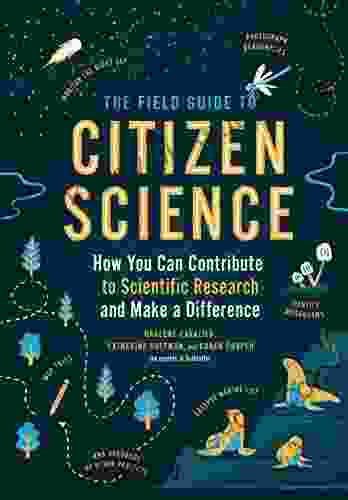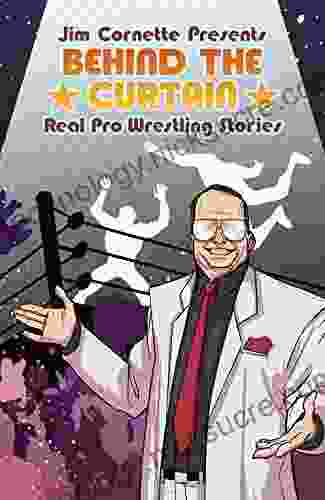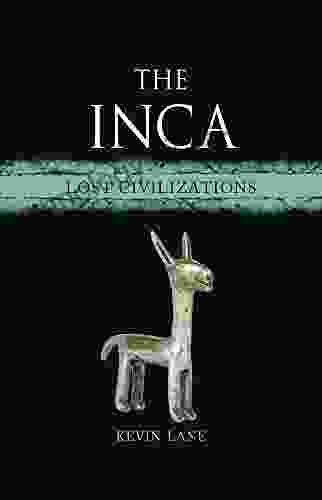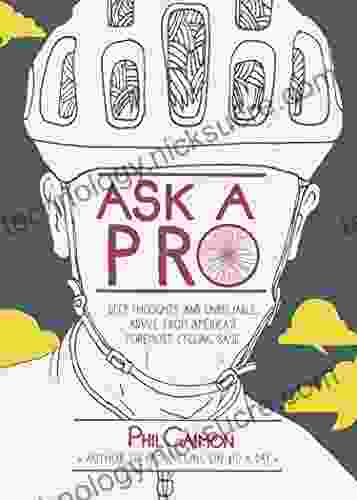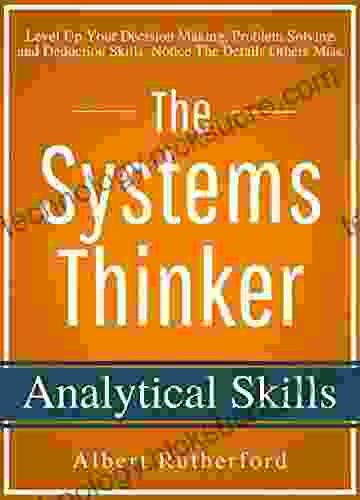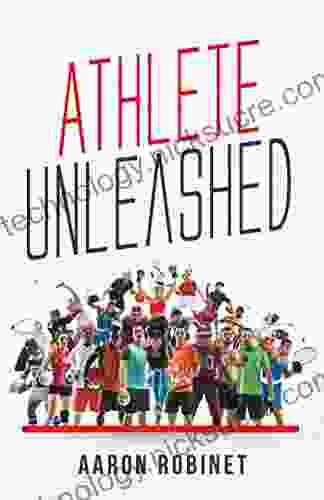The Field Guide to Citizen Science

Citizen science is a growing movement of people who volunteer their time and expertise to collect and analyze data for scientific research. This field guide provides an overview of citizen science, including its history, methods, and applications. It also provides tips for designing and implementing citizen science projects.
The roots of citizen science can be traced back to the 19th century, when naturalists and other scientists began to enlist the help of volunteers to collect data on the natural world. One of the earliest examples of citizen science is the Audubon Christmas Bird Count, which was first held in 1900 and is still conducted today.
In recent years, citizen science has experienced a resurgence in popularity due to the rise of the internet and social media. These technologies have made it easier for scientists to connect with volunteers and for volunteers to share their data. As a result, citizen science is now being used to address a wide range of scientific questions, from climate change to public health.
4.6 out of 5
| Language | : | English |
| File size | : | 5870 KB |
| Text-to-Speech | : | Enabled |
| Screen Reader | : | Supported |
| Enhanced typesetting | : | Enabled |
| X-Ray | : | Enabled |
| Word Wise | : | Enabled |
| Print length | : | 188 pages |
| Lending | : | Enabled |
There are many different ways to conduct citizen science projects. Some projects involve volunteers collecting data in the field, while others involve volunteers analyzing data that has been collected by scientists. Some projects are small and local, while others are large and global.
The most common type of citizen science project is the observational study. In an observational study, volunteers collect data on a particular phenomenon by observing it over time. For example, volunteers might collect data on the number of birds in a park or the amount of litter on a beach.
Another type of citizen science project is the experimental study. In an experimental study, volunteers collect data on a particular phenomenon by manipulating one or more variables. For example, volunteers might collect data on the effect of different fertilizers on plant growth or the effect of different cleaning products on water quality.
Citizen science can be used to address a wide range of scientific questions, including:
- Climate change: Citizen scientists can collect data on temperature, precipitation, and other climate variables to help scientists track the effects of climate change.
- Public health: Citizen scientists can collect data on air quality, water quality, and other public health indicators to help scientists identify and address environmental health risks.
- Biodiversity: Citizen scientists can collect data on plant and animal species to help scientists track the health of ecosystems and identify threats to biodiversity.
- Education: Citizen science projects can be used to teach students about science and the natural world. Citizen science can also help students develop critical thinking and problem-solving skills.
If you are interested in designing and implementing a citizen science project, there are a few things you should keep in mind:
- Start with a clear goal. What do you want to learn from your project? Once you know your goal, you can develop a plan for collecting and analyzing data.
- Recruit a team of volunteers. The success of your project will depend on the commitment of your volunteers. Make sure to recruit volunteers who are passionate about your topic and who are willing to commit to the project for the long haul.
- Provide training. Your volunteers will need to be trained on how to collect and analyze data. Make sure to provide clear instructions and materials.
- Monitor your data regularly. Once you start collecting data, it is important to monitor it regularly to make sure that it is accurate and complete. You should also analyze your data regularly to identify trends and patterns.
- Share your results. Once you have analyzed your data, you should share your results with other scientists and the public. This will help to raise awareness of your topic and encourage others to get involved in citizen science.
Citizen science is a powerful tool that can be used to enhance scientific research and promote environmental stewardship. By engaging volunteers in the scientific process, we can collect more data, identify new trends, and solve complex problems. If you are interested in getting involved in citizen science, there are many opportunities to do so. You can find citizen science projects in your local community or online.
4.6 out of 5
| Language | : | English |
| File size | : | 5870 KB |
| Text-to-Speech | : | Enabled |
| Screen Reader | : | Supported |
| Enhanced typesetting | : | Enabled |
| X-Ray | : | Enabled |
| Word Wise | : | Enabled |
| Print length | : | 188 pages |
| Lending | : | Enabled |
Do you want to contribute by writing guest posts on this blog?
Please contact us and send us a resume of previous articles that you have written.
 Fiction
Fiction Non Fiction
Non Fiction Romance
Romance Mystery
Mystery Thriller
Thriller SciFi
SciFi Fantasy
Fantasy Horror
Horror Biography
Biography Selfhelp
Selfhelp Business
Business History
History Classics
Classics Poetry
Poetry Childrens
Childrens Young Adult
Young Adult Educational
Educational Cooking
Cooking Travel
Travel Lifestyle
Lifestyle Spirituality
Spirituality Health
Health Fitness
Fitness Technology
Technology Science
Science Arts
Arts Crafts
Crafts DIY
DIY Gardening
Gardening Petcare
Petcare Hiro Ainana
Hiro Ainana Andrew Stellman
Andrew Stellman Keith H Basso
Keith H Basso Dr Rebecca Harwin
Dr Rebecca Harwin Earl Swift
Earl Swift Alicia Ranoldo
Alicia Ranoldo Alex Banks
Alex Banks Greg Michaelson
Greg Michaelson Elizabeth White
Elizabeth White Dennis R Helsel
Dennis R Helsel Jennifer Van Allen
Jennifer Van Allen Nate Silver
Nate Silver Shannon Jett
Shannon Jett Game Spark
Game Spark Hadley Wickham
Hadley Wickham Michael Teitelbaum
Michael Teitelbaum Yannis Detorakis
Yannis Detorakis Catherine Crier
Catherine Crier Donnie Eichar
Donnie Eichar Jase Robertson
Jase Robertson Kyle Rohrig
Kyle Rohrig Margaret Rooke
Margaret Rooke Stormie Omartian
Stormie Omartian Catherine Dawson
Catherine Dawson Brent Herrick
Brent Herrick Alberto Villoldo
Alberto Villoldo John Boyette
John Boyette Michael Digiacomo
Michael Digiacomo Eli Burakian
Eli Burakian Phyllis Good
Phyllis Good Michele Gelfand
Michele Gelfand Richard Ronald
Richard Ronald Diana Hopkins
Diana Hopkins Mark Sisson
Mark Sisson Alejandro Portes
Alejandro Portes Alex Boese
Alex Boese Brigid Kemmerer
Brigid Kemmerer Stephen L Sass
Stephen L Sass Alex Wolf
Alex Wolf Amber Lia
Amber Lia Kirsten Koza
Kirsten Koza Arshay Cooper
Arshay Cooper Jules Wake
Jules Wake River
River Charlene L Edge
Charlene L Edge Thomas Huhti
Thomas Huhti Evan F Moore
Evan F Moore Gordon Rugg
Gordon Rugg Steve Bechtel
Steve Bechtel Idan Ravin
Idan Ravin Suzie Sheehy
Suzie Sheehy Phil Pierce
Phil Pierce Lake E High
Lake E High Geza Vermes
Geza Vermes Alexander Jones
Alexander Jones Elena Zotova
Elena Zotova Fridtjof Nansen
Fridtjof Nansen Scott Whitlock
Scott Whitlock Brian Beffort
Brian Beffort Upgraded Brain
Upgraded Brain Donald D Hoffman
Donald D Hoffman Thomas Jaden
Thomas Jaden Kent David Kelly
Kent David Kelly J Richard Hackman
J Richard Hackman Russ Unger
Russ Unger Albert Rutherford
Albert Rutherford Rebecca Schrag Hershberg
Rebecca Schrag Hershberg Zach Davis
Zach Davis Lara S Ormiston
Lara S Ormiston Phil Gaimon
Phil Gaimon Alex Pentland
Alex Pentland Jacqueline Tourville
Jacqueline Tourville Gabriyell Sarom
Gabriyell Sarom Wesley Bernardini
Wesley Bernardini Ashton Cartwright
Ashton Cartwright Albert J Raboteau
Albert J Raboteau Jennet Conant
Jennet Conant Alexander Mccall Smith
Alexander Mccall Smith George Ehrenhaft
George Ehrenhaft Joe Nobody
Joe Nobody Will Hart
Will Hart Don Pitcher
Don Pitcher Chukwuma Eleodimuo
Chukwuma Eleodimuo Phil Jarratt
Phil Jarratt Patrick Alan Danaher
Patrick Alan Danaher Aaron Robinet
Aaron Robinet Kathryn Purdie
Kathryn Purdie Ken Schultz
Ken Schultz Daniel L Everett
Daniel L Everett Audra Fordin
Audra Fordin George E Vaillant
George E Vaillant Eric Mason
Eric Mason Todd Denault
Todd Denault Jennifer Boyle
Jennifer Boyle Daniel Pautrat
Daniel Pautrat Dan Gookin
Dan Gookin Ralph Vacchiano
Ralph Vacchiano Karen Casey
Karen Casey Deirdre Martin
Deirdre Martin W C Mcrae
W C Mcrae Sareen S Gropper
Sareen S Gropper Ruth Minsky Sender
Ruth Minsky Sender Martin Baldridge
Martin Baldridge Alex Mars
Alex Mars Fiaz Rafiq
Fiaz Rafiq Gary Coleman
Gary Coleman Kortney Keisel
Kortney Keisel Janine Marsh
Janine Marsh Paul Volponi
Paul Volponi Ernest Hemingway
Ernest Hemingway Sarah Lynne Bowman
Sarah Lynne Bowman Roseanne A Brown
Roseanne A Brown David N Myers
David N Myers Fretta Reitzes
Fretta Reitzes Phil Hanrahan
Phil Hanrahan Peter Collier
Peter Collier Ben Malisow
Ben Malisow Sky Marsen
Sky Marsen S Kelley Harrell
S Kelley Harrell Peter Brown
Peter Brown Amanda Epperson
Amanda Epperson Molly Knox Ostertag
Molly Knox Ostertag Cecil B Hartley
Cecil B Hartley Sally Huss
Sally Huss Alda Sigmundsdottir
Alda Sigmundsdottir Daniel Shapiro
Daniel Shapiro Dr Yvonne S Thornton
Dr Yvonne S Thornton Alistair Moffat
Alistair Moffat Titania Hardie
Titania Hardie Alexander Boxer
Alexander Boxer Sally Moomaw
Sally Moomaw Michael Clary
Michael Clary William R Short
William R Short Linda White
Linda White Mia King
Mia King Barbara Ehrenreich
Barbara Ehrenreich Holly Black
Holly Black Olivier Doleuze
Olivier Doleuze Teresa Denton
Teresa Denton Richard Shotton
Richard Shotton Anatoli Boukreev
Anatoli Boukreev Suzanne Collins
Suzanne Collins Jon Krakauer
Jon Krakauer Tiffany Dionne
Tiffany Dionne Pedro Domingos
Pedro Domingos Mine Dogucu
Mine Dogucu Stephen Wilbers
Stephen Wilbers Kieran Mccarthy
Kieran Mccarthy Victoria Schwab
Victoria Schwab Mauricio Fau
Mauricio Fau Patrick F Mcmanus
Patrick F Mcmanus Genese Marie Sodikoff
Genese Marie Sodikoff Katherine Leigh
Katherine Leigh Alberta Hawse
Alberta Hawse P J Agness
P J Agness Peter J Feibelman
Peter J Feibelman Pascal Boyer
Pascal Boyer Roy Plotnick
Roy Plotnick Megan Carle
Megan Carle Michael Steven
Michael Steven Julia Wertz
Julia Wertz Steve Helling
Steve Helling Alessio Mangoni
Alessio Mangoni Heather Dale
Heather Dale Howard Schor
Howard Schor Alex Hibbert
Alex Hibbert Rebecca Wilson
Rebecca Wilson Stanley Cohen
Stanley Cohen Richard Cole
Richard Cole Soo Kim Abboud
Soo Kim Abboud Garth Nix
Garth Nix Brett Cohen
Brett Cohen Devin Devasquez
Devin Devasquez Stephen R Lawhead
Stephen R Lawhead Conn Iggulden
Conn Iggulden Harold Klemp
Harold Klemp Arieh Ben Naim
Arieh Ben Naim Chella Man
Chella Man Bruce Johnson
Bruce Johnson Olivia Wildenstein
Olivia Wildenstein Albert W A Schmid
Albert W A Schmid Loriann Oberlin
Loriann Oberlin L R Trovillion
L R Trovillion Chuck Norris
Chuck Norris Stephen K Hayes
Stephen K Hayes Victor Davis Hanson
Victor Davis Hanson Derek Lundy
Derek Lundy Derrick Niederman
Derrick Niederman Oluwaseun Ajayi
Oluwaseun Ajayi Stan Utley
Stan Utley Alex Morgan
Alex Morgan Christina Riggs
Christina Riggs Wallace Wang
Wallace Wang Michele Filgate
Michele Filgate Tony Roig
Tony Roig Qaiser Feroze
Qaiser Feroze Jason R Rich
Jason R Rich Sara Shepard
Sara Shepard Thomas Cahill
Thomas Cahill Hannah Arendt
Hannah Arendt Cosmic Kids Publications
Cosmic Kids Publications Alexa Whitewolf
Alexa Whitewolf Alan Lightman
Alan Lightman Matthew Johnson
Matthew Johnson Janie B Butts
Janie B Butts Mark Creasy
Mark Creasy Thomas Sowell
Thomas Sowell Jenna Gottlieb
Jenna Gottlieb Georgiann Davis
Georgiann Davis Ernest T Stringer
Ernest T Stringer Julie Berry
Julie Berry Itzhak Bentov
Itzhak Bentov Michael Terry
Michael Terry Marilynn Hughes
Marilynn Hughes Graham Hancock
Graham Hancock Steve Warner
Steve Warner Chip Heath
Chip Heath Mary Lynne Fernandez
Mary Lynne Fernandez Darin Ingels
Darin Ingels Rajesh K Naz
Rajesh K Naz Robert Benson
Robert Benson Leonhard Euler
Leonhard Euler Alex Zimmerman
Alex Zimmerman Alex Riley
Alex Riley Tracy Brown Collins
Tracy Brown Collins Patrick Taylor
Patrick Taylor Aleksandr Anufriyev
Aleksandr Anufriyev Rough Guides
Rough Guides Alex Harris
Alex Harris Milan Yerkovich
Milan Yerkovich Vimla L Patel
Vimla L Patel Celia Hodent
Celia Hodent G Blake Meike
G Blake Meike Sarah Stewart Johnson
Sarah Stewart Johnson Alfred P Rovai
Alfred P Rovai Gail M Nelson
Gail M Nelson Marian Dewane
Marian Dewane Peter Galison
Peter Galison Gordon Feinberg
Gordon Feinberg David Leadbetter
David Leadbetter James Johonnot
James Johonnot Leigh Hatts
Leigh Hatts Bertus Engelbrecht
Bertus Engelbrecht Elon Vidal
Elon Vidal Dipika Mukherjee
Dipika Mukherjee Beverleigh H Piepers
Beverleigh H Piepers Hal Higdon
Hal Higdon David Shinar
David Shinar Linda Egenes
Linda Egenes Sam Jalloh
Sam Jalloh Aleister Crowley
Aleister Crowley Phil Keith
Phil Keith Caren Cooper
Caren Cooper L Michele Issel
L Michele Issel Jacob Sannox
Jacob Sannox Namita Prasad
Namita Prasad Janja Lalich
Janja Lalich Rachael Ray
Rachael Ray Alex Guarnaschelli
Alex Guarnaschelli Lonely Planet
Lonely Planet Aubrey Sherman
Aubrey Sherman Jennifer Kramer
Jennifer Kramer Alex Bellos
Alex Bellos Aaron Reynolds
Aaron Reynolds Scott Turansky
Scott Turansky Pamela K Lamb
Pamela K Lamb Nikki Nichols
Nikki Nichols Travis Eliot
Travis Eliot Chanice Lee
Chanice Lee Martha Sears
Martha Sears Ari Mennander
Ari Mennander John Burroughs
John Burroughs R K Gupta
R K Gupta Alexandra Bracken
Alexandra Bracken Richard M Foxx
Richard M Foxx Lisa Silverman
Lisa Silverman Katrina M Adams
Katrina M Adams Jennifer Estep
Jennifer Estep Austin Murphy
Austin Murphy Douglas Doman
Douglas Doman Gabriel Levy
Gabriel Levy Jimmy Connors
Jimmy Connors David J Chalmers
David J Chalmers Jerry C Zee
Jerry C Zee Laura Morton Rd
Laura Morton Rd Mark Reed
Mark Reed Victoria Wilson
Victoria Wilson Joan Wulff
Joan Wulff Robbie Couch
Robbie Couch Ron Mckeefery
Ron Mckeefery Julian B Barbour
Julian B Barbour Suzanna Mcgee
Suzanna Mcgee Ash Perrin
Ash Perrin Jeff Galloway
Jeff Galloway Albert Hofmann
Albert Hofmann Yang Erche Namu
Yang Erche Namu David N Schwartz
David N Schwartz Winona Guo
Winona Guo Jim Davidson
Jim Davidson Christie Cognevich
Christie Cognevich Amy Newmark
Amy Newmark Don Bendell
Don Bendell Duncan Wells
Duncan Wells Danielle Paige
Danielle Paige Deborah L Davis
Deborah L Davis Laura Pavlov
Laura Pavlov Steve Flink
Steve Flink Alex Wade
Alex Wade Saunders Mac Lane
Saunders Mac Lane Walter Gretzky
Walter Gretzky Michael Sandler
Michael Sandler Jennifer Cohen Harper
Jennifer Cohen Harper Taylor Harris
Taylor Harris Vanessa Van Edwards
Vanessa Van Edwards Morgan Lyle
Morgan Lyle Bill Haggerty
Bill Haggerty Anne Bogel
Anne Bogel Anne Dachel
Anne Dachel Judy Dutton
Judy Dutton Brent Zwerneman
Brent Zwerneman Robertson Tait
Robertson Tait Nate Orlowek
Nate Orlowek Emma Hansen
Emma Hansen Moh Kolli Carnet
Moh Kolli Carnet Kinsey Phifer
Kinsey Phifer Sabine Hossenfelder
Sabine Hossenfelder Sophie David
Sophie David Mary Ellen Hannibal
Mary Ellen Hannibal Dan Jacob
Dan Jacob Sarah Ockwell Smith
Sarah Ockwell Smith Stephanie Ermenegild
Stephanie Ermenegild Stephon Alexander
Stephon Alexander David G Kleinbaum
David G Kleinbaum Angelo Tropea
Angelo Tropea Ellen Snortland
Ellen Snortland Danielle Tumminio Hansen
Danielle Tumminio Hansen Philip Wylie
Philip Wylie Marvin Harris
Marvin Harris Alexander L Co
Alexander L Co Glenn Rivers
Glenn Rivers Scott Butler
Scott Butler Kevin Bales
Kevin Bales James Suzman
James Suzman Paul Trammell
Paul Trammell Lynn Alley
Lynn Alley Alexander Bennett
Alexander Bennett Albert S Tarendash
Albert S Tarendash Katie Edwards
Katie Edwards Alexander Mackenzie
Alexander Mackenzie Albert Ellis
Albert Ellis Jon B Gould
Jon B Gould Alex Light
Alex Light Peter Matthiessen
Peter Matthiessen Henrik Beyer
Henrik Beyer Douglas D Scott
Douglas D Scott David Thomas
David Thomas Carla Naumburg
Carla Naumburg Eric R Kandel
Eric R Kandel Diana L Paxson
Diana L Paxson Stephan Martin
Stephan Martin Alexa Nicole Cucchiara
Alexa Nicole Cucchiara Bob Palmer
Bob Palmer C J Brown
C J Brown Tetsu Kariya
Tetsu Kariya Hannah V Holmes
Hannah V Holmes J C Herz
J C Herz Otto Kroeger
Otto Kroeger Peter Maguire
Peter Maguire Alex Bezzerides
Alex Bezzerides James Patterson
James Patterson Albert Marrin
Albert Marrin Jeana Jorgensen
Jeana Jorgensen Alex J Gutman
Alex J Gutman John Kretschmer
John Kretschmer Howard Carter
Howard Carter Alex J Packer
Alex J Packer Vasti Torres
Vasti Torres Meredith Atwood
Meredith Atwood Lyn Kelley
Lyn Kelley Terry Marsh
Terry Marsh Robert L Wolke
Robert L Wolke Simon Monk
Simon Monk Tim Moore
Tim Moore Paul Sating
Paul Sating Alessandro Valerani
Alessandro Valerani Anna Post
Anna Post Nancy Silverton
Nancy Silverton Kingsley Amis
Kingsley Amis Sam Sheridan
Sam Sheridan Alex Polyakov
Alex Polyakov Eric Enge
Eric Enge Larry Pardey
Larry Pardey Denny Matthews
Denny Matthews John Quick
John Quick Sheryl Buckland
Sheryl Buckland K D Hume
K D Hume Robert Dos Remedios
Robert Dos Remedios David Borgenicht
David Borgenicht Philip Ball
Philip Ball Andrew Zerling
Andrew Zerling Jerry C Whitaker
Jerry C Whitaker Celeste Headlee
Celeste Headlee Erin Bowe
Erin Bowe Gary Nicol
Gary Nicol Chris Englert
Chris Englert Nancy Marie Brown
Nancy Marie Brown Michael Thompson
Michael Thompson Scott L Smith
Scott L Smith Fataniss Store
Fataniss Store Alex Reinhart
Alex Reinhart Alexander Ferrauti
Alexander Ferrauti Alfie Kohn
Alfie Kohn Kathleen Mcmillan
Kathleen Mcmillan Kristen Jane Anderson
Kristen Jane Anderson Daniel Defoe
Daniel Defoe Pittacus Lore
Pittacus Lore Alex Itsios
Alex Itsios Saxon Andrew
Saxon Andrew Sarah Franklin
Sarah Franklin Jenny Mackay
Jenny Mackay John Thorne
John Thorne Duncan Butchart
Duncan Butchart Kalynn Bayron
Kalynn Bayron George Marshall
George Marshall Gigi Georges
Gigi Georges Scott Kelly
Scott Kelly Brad Borkan
Brad Borkan Willard A Palmer
Willard A Palmer Sabbithry Persad Mba
Sabbithry Persad Mba Aman Gupta
Aman Gupta Matt Johanson
Matt Johanson Alex Johnson
Alex Johnson Laura Eckert
Laura Eckert Lisa Manterfield
Lisa Manterfield Tim Cahill
Tim Cahill F T Lukens
F T Lukens Peter Ross
Peter Ross Dan Purser Md
Dan Purser Md Josh Bryant
Josh Bryant Gf Denehy
Gf Denehy David L Demets
David L Demets Luis Angel Echeverria
Luis Angel Echeverria Robert Spindler
Robert Spindler Robert Penn
Robert Penn Pekka Louhiala
Pekka Louhiala Elissa Wall
Elissa Wall Kristin Gambaccini
Kristin Gambaccini John Stage
John Stage David Farrier
David Farrier Raj Kumar
Raj Kumar Darl Kuhn
Darl Kuhn Scott Fratcher
Scott Fratcher Alexander Meyer
Alexander Meyer Margaret Willson
Margaret Willson Alexander Clarke
Alexander Clarke Jim Hynes
Jim Hynes Alex Gillis
Alex Gillis C C Hunter
C C Hunter Ben Ainslie
Ben Ainslie Eric Zandona
Eric Zandona Mark Golds
Mark Golds Richard D Easton
Richard D Easton Theodore X O Connell
Theodore X O Connell Mark Warren
Mark Warren Jeremy Kubica
Jeremy Kubica Kevin Mcaleer
Kevin Mcaleer Kevin Gallagher
Kevin Gallagher Cary Nemeroff
Cary Nemeroff Alex Hunter
Alex Hunter Robert W Winters
Robert W Winters Q S Khan
Q S Khan
Light bulbAdvertise smarter! Our strategic ad space ensures maximum exposure. Reserve your spot today!
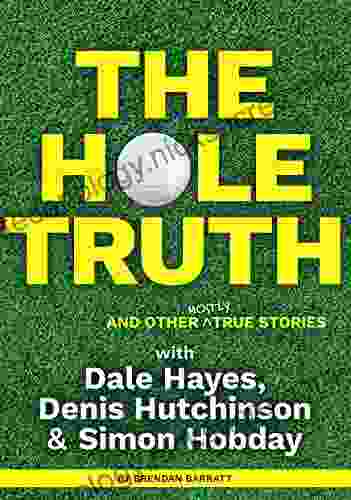
 Dashawn HayesUnveiling the Literary Masterpiece: "The Hole Truth and Other Mostly True...
Dashawn HayesUnveiling the Literary Masterpiece: "The Hole Truth and Other Mostly True... Denzel HayesFollow ·2.9k
Denzel HayesFollow ·2.9k Evan SimmonsFollow ·15.2k
Evan SimmonsFollow ·15.2k Alfred RossFollow ·16.9k
Alfred RossFollow ·16.9k Clark BellFollow ·5.8k
Clark BellFollow ·5.8k Lee SimmonsFollow ·8.7k
Lee SimmonsFollow ·8.7k Martin CoxFollow ·10.2k
Martin CoxFollow ·10.2k Aleksandr PushkinFollow ·13k
Aleksandr PushkinFollow ·13k Raymond ChandlerFollow ·6.9k
Raymond ChandlerFollow ·6.9k

 Jeffrey Cox
Jeffrey CoxEasy Recipes And Meal Plans For Healthy Pregnancy
Congratulations on...

 Andy Cole
Andy ColeDive into the Fiery Ordeal and Mockingjay's Rebellion: An...
: A Captivating Dystopian Saga The...

 Ernest Powell
Ernest PowellLore Alexandra Bracken: Unveiling the Mastermind Behind...
: In the vast expanse of contemporary...
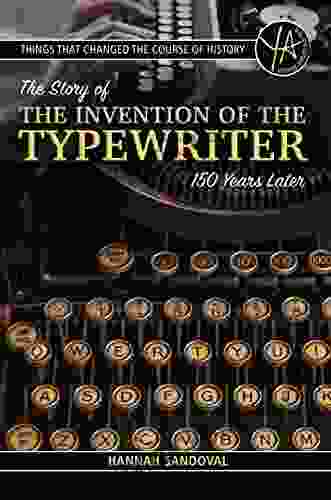
 T.S. Eliot
T.S. EliotThe Story of the Invention of the Typewriter: 150 Years...
The typewriter, a...
4.6 out of 5
| Language | : | English |
| File size | : | 5870 KB |
| Text-to-Speech | : | Enabled |
| Screen Reader | : | Supported |
| Enhanced typesetting | : | Enabled |
| X-Ray | : | Enabled |
| Word Wise | : | Enabled |
| Print length | : | 188 pages |
| Lending | : | Enabled |


